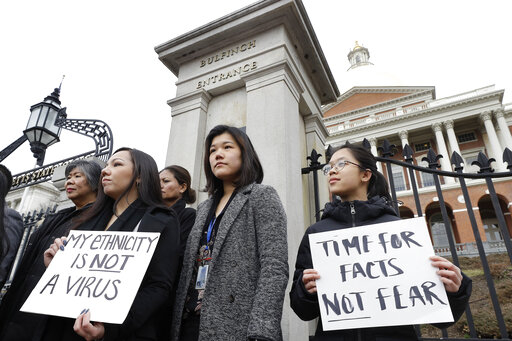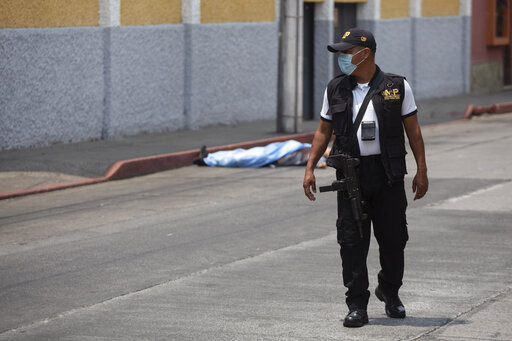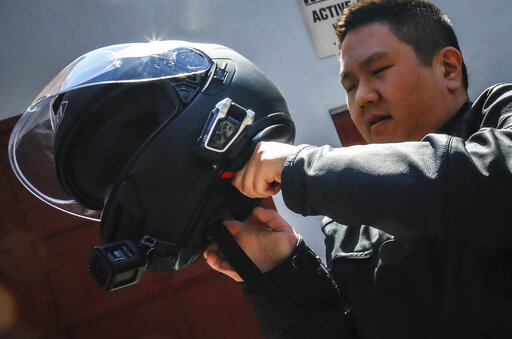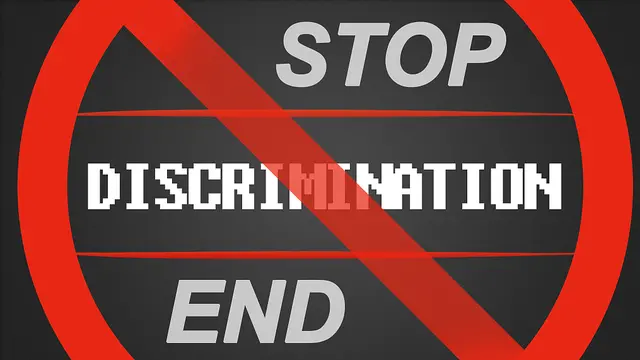
During the coronavirus pandemic, most of the concerns about personal safety have tended to be about the provision of protective equipment.
The saying "stay safe" at this time is generally being taken to be an entreaty to minimize the risk of contracting COVID-19, the disease caused by the virus.
But what about more traditional security threats like crime in the age of the lockdown? Well, some jurisdictions, as might be expected, have experienced steepdrops in levels of street and some types of property crime along with murder and other violent acts.
But virus-related opportunistic offenses like online fraud, domestic abuse and hate crimes, especially against people of Asian descent, have increased.
Last week, the United States Department of Justice said it had disrupted hundreds of internet scams.
"As of April 21, 2020, the FBI's Internet Crime Complaint Center has received and reviewed more than 3,600 complaints related to COVID-19 scams, many of which operated from websites that advertised fake vaccines and cures, operated fraudulent charity drives, delivered malware, or hosted various other types of scams," the department said.
Domestic killings up
The fraudulent schemes included an illicitwebsite pretendingto solicit and collect donations to the American Red Cross and websites thatspoofed government programs and organizationsto trick Americans into entering personally identifiable information, including banking details.

A man lies dead in a street in Guatemala City after being shot by unknown attackers as an inspector of the Attorney General's office walks through the area, April 14, 2020. In the time of the new coronavirus, authorities and citizens of several Latin American countries say quarantines seem to have led to a fall of crime, especially on the streets, but they also warn of the rise of violence against women. /AP
Across the Atlantic, Europol, the European Union's anti-crime agency, said: "From websites selling fake COVID-19 blood screening tests taken down by several EU Member States' law enforcement authorities ... to the sale of chloroquine via instant messaging apps: counterfeiters have been quick to cash in on COVID-19."
"What we see is that criminal business continues, and not as usual," Catherine de Bolle, the executive director of Europol, said in reference to new criminal opportunities that are opening up. "Criminals abuse, really, the pandemic situation."
One area also seeing an apparent surge is domestic abuse. In Britain, calls to a national domestic abuse helpline rose by 49 percent and killings doubled within three weeks after the national lockdown to try to halt the spread of the coronavirus.
This prompted a call from a bipartisan committee of UK parliamentarians for an urgent action plan from government setting out practical measures to tackle domestic abuse as an integrated part of the fight against COVID-19.
This scenario is repeated in areas of North and Latin America. A report by UN Women on Wednesday quoted a women's group in Argentina as saying there was doubling in the number of femicides in the country during the quarantine.
Virus discrimination
In response, Argentinian filmmaker Lucía Vassallo said domestic violence "seems to be another pandemic" in itself.
The novel coronavirus global outbreak has also fueled violent attacks against East Asians in countries around the world, though the hate crime reports are mostly in North America and Europe.

Eddie Song, a Korean American entrepreneur, prepares to ride his motorcycle wearing a jacket over extra body padding while equipped with video cameras, in the East Village neighborhood of New York on April 19, 2020. After being blamed for causing the coronavirus outbreak in a recent assault, Song says he routinely wears the extra gear for extra safety. /AP
The situation wasn't helped by U.S. President Donald Trump and others calling the virus the "Chinese virus" even as scientists said the disease has nothing to do with Asian ethnicity.
In the first month since it was launched in March, a website tracking reports of racial abuse in the U.S. said it had received 1,497 reports of coronavirus discrimination from Asian Americans.
"Even as shelter-in-place policies were implemented across much of the country and AAPIs (Asian American Pacific Islanders) interacted less with others, the rate of acts of racism remains alarming," said a release from the Los Angeles-based Asian Pacific Policy and Planning Council, a co-founder of the website.
In analyzing the data, Russell Jeung, professor of Asian American Studies at San Francisco State University, concluded: "The high number of hate incidents, especially assaults, reflects the impact of China-bashing by politicians."
Homicides fall
One U.S. news outlet went so far as to use the headline "Xenophobia – Especially Against Asians – Becomes A Pandemic Of Its Own" on a report.

The headquarters of Europol in The Hague, Netherlands (Dec. 2, 2016 file photo). The European law enforcement agency says criminals have spotted new business opportunities with the coronavirus pandemic. /AP
Other areas said to be seeing increases include burglary of closed business houses, car thefts, price gouging and new offenses like malicious coughing and spitting and defying stay-at-home orders and restrictions on public gatherings.
On the other hand, some countries and cities have recorded encouraging declines in reports of some criminal activities as people are restricted to their homes globally.
In the U.S. state of Chicago, media reports said drug arrests dropped by 42 percent in the early weeks after the city shut down while in Los Angeles, the rate of key crimes plummeted by almost a third after March 15. Miami did not report a murder for six weeks, the first time that has happened since 1964.
New York, the American epicenter of COVID-19, has also been seeing a double-digit decrease in crime, but the picture, as is often the case, is more nuanced. For instance, subway robberies rose 55 percent in March year on year despite a sharp drop in ridership.
In many cities, police are making fewer traffic stops and other interventions as they seek to minimize contact with people. Drug arrests have therefore fallen.
In Latin America, which carries the dubious title of murder capital of the world, hot spots like Colombia and Mexico have seen declines in homicides. El Salvador did too in March, but last weekend 53 people were killed, allegedly by criminal gangs.
Outdoor crime does seem to be down generally as much of the world remains on pause. Law enforcement agencies should enjoy the moment. As economies suffer and unemployment rates rise in the wake of COVID-19, it is not fanciful to expect that on every continent they will have their hands full in the weeks and months ahead after lockdowns end.
(Top Photo: Jessica Wong, of Fall River, Mass., front left, Jenny Chiang, of Medford, Mass., center, and Sheila Vo, of Boston, from the state's Asian American Commission, stand together during a protest on Thursday, March 12, 2020, on the steps of the Statehouse in Boston. Asian American leaders in Massachusetts condemned what they say is racism and fear-mongering aimed at Asian communities amid the coronavirus pandemic that began in China. /AP)
 简体中文
简体中文



